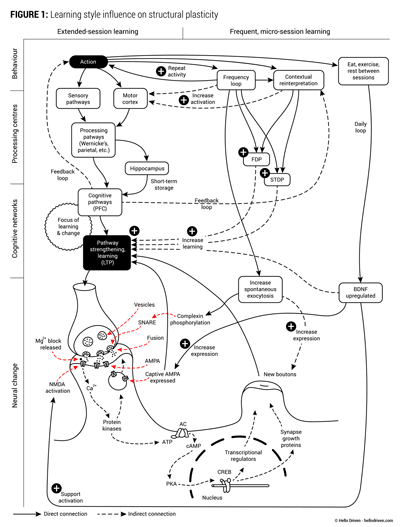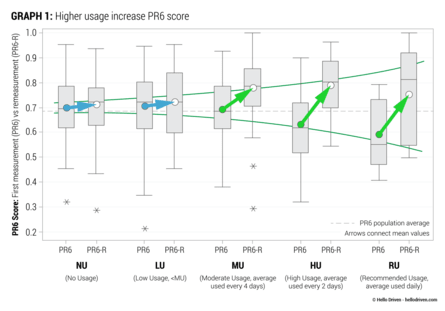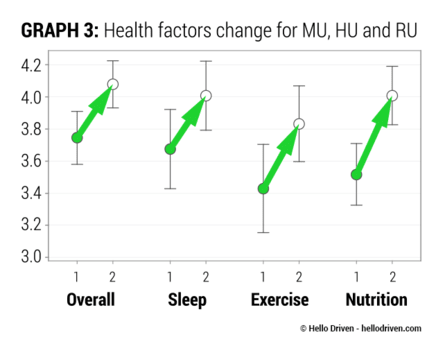RES2019
RES2019
Driven Peer-Reviewed Longitudinal Results
Building Resilience Through a Virtual Coach Called Driven: Longitudinal Pilot Study and the Neuroscience of Small, Frequent Learning Tasks.

Paper: Building Resilience Through a Virtual Coach Called Driven: Longitudinal Pilot Study and the Neuroscience of Small, Frequent Learning Tasks
Digital interventions hold promise to address the global decline in mental health. Resilience is indicated as an avenue to enact preventative care. Combining resilience enhancement with a neuroscience-based learning technique may attenuate current trends.
Methods
This study sets out the neurobiological mechanics of small, micro-session learning (microtasks), and tested their efficacy in building resilience capacity through a digital conversive program called Driven to create lasting behavioural change. Using the foundations of the microtask approach, Driven was constructed as an automated intervention to improve resilience capacity, based on the PR6 resilience framework. Real world data from a sub-clinical cohort (n=387) across four organisations were analysed using the PR6 resilience psychometric to assess resilience pre and post intervention. Usage rates of Driven and other factors were investigated through regression analyses as predictors of future resilience capacity improvement.


results
Of the invited cohort, 89% (n=345/387) participated and were mostly male (74.5%, n=257/345). Median time between first and second PR6 assessment was 199 days. Of participants, 70.4% (n=245/345) completed the second assessment. Average individual improvement in resilience was 10.9% for the remeasured cohort (n=245). Results showed higher daily usage of Driven resulted in greater resilience improvements, with usage of more than once every four days resulted in a 15.6% improvement, and average usage once every two days resulted in a 24.9% improvement. Low or no usage of Driven showed no significant improvement. Further, a lower pre intervention score resulted in higher participation and higher subsequent improvement.
Conclusion
Delivering microtasks through a digital virtual coaching approach presents a reliable method to achieve lasting behavioural change and improve resilience capacity. Additionally, Driven displays an ability to provide effective preventative intervention to those with greater need.

More research from us
Predictive 6 Factor Resilience Scale
The PR6 is an advanced and efficient resilience psychometric measurement. Through a 3-min questionnaire, the PR6 identifies resilience across 6 distinct domains of resilience.
How resilience benefits business (Infographic)
Mental health costs are growing globally. Fortunately, investing in mental health curbs costs & helps people to live better lives. Save $6,238 through improved resilience per employee a year.
89% Participation & 91% of active participants improve
Case Study – Building on a clear understanding of the requirements, we developed four work streams to achieve a measurably successful outcome.
5 Guidelines to run the best resilience training program
Far too many resilience programs run without measurement, leaving management with no idea if the investment was worth it.
